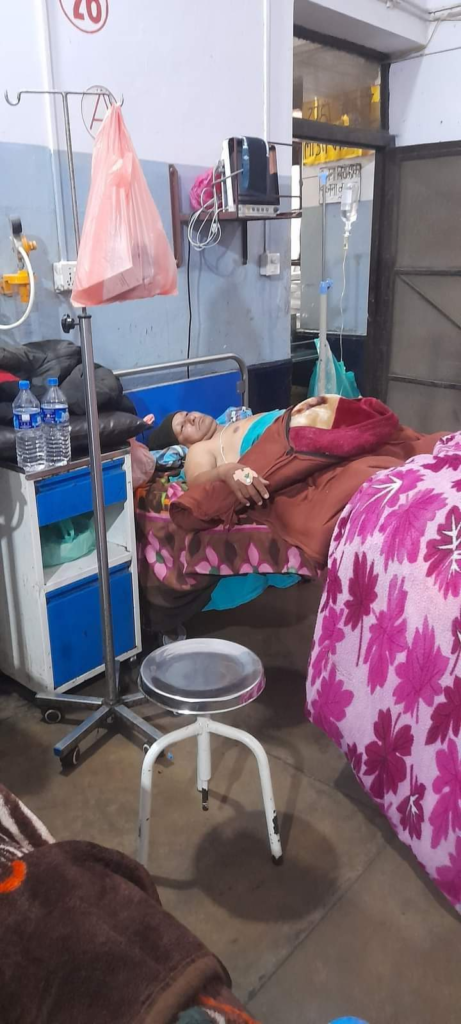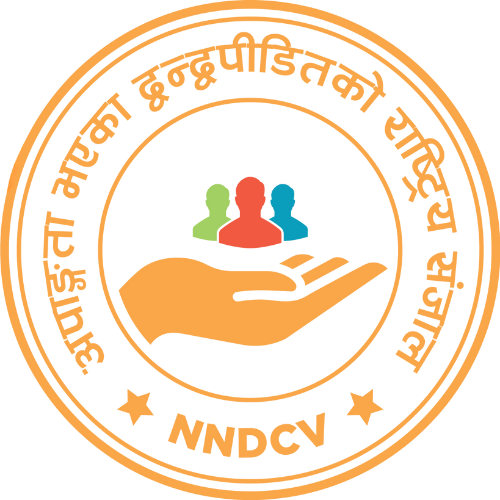The report on the “Immediate Response Fund” supported by Nagarik Aawaz
Introduction
Nagarik Aawaz has been supporting regular medication, assistive devices and psychosocial support to the civilian made disabled due to the 10 years armed conflict in Nepal through National Network of Disabled Conflict Victims (NNDCV). This report provides an overview of the medical support and assistive devices support expenses received by the civilian made disabled due to the 10 years armed conflict in Nepal. The reporting period spans from October 2023 to March 2024.
Areas of Support
- Medical Support: Till now sixteen people have received the medical support. Many are unable to afford regular medical care primarily due to their economic hardship and social circumstances. Through this support, civilian disabled victims who require regular medical attention, including doctor visits and medication needs are addressed. The detailed name list who received the medical support and expenses are attached in the budget excel sheet.
- Assistive Devices: Till now, seven people received assistive device support expenses. Through this support, disabled conflict victims can procure mobility aids like wheelchairs, prosthetics, crutches, walkers, canes, hearing aids, and more to enhance their independence and mobility. The detailed name list who received assistive support and expenses are attached in the budget excel sheet.
Challenges:
- Those disabled conflict victims who lives in remote area has to travel to other parts of the country to access the assistive devices they need. This can be difficult for people who have limited mobility or limited access to transportation.
- NNDCV does not receive the medical bills timely from outside the Kathmandu valley as they have to send the bills via local bus or courier services which creates hindrances for the payment process.
- Lack of awareness among people with disabilities about the range of assistive technologies available to them. This can be particularly challenging for those living in rural or remote areas who may not have easy access to information about available technologies.
- Even when people with disabilities are able to access assistive technologies, they may not receive the training and support they need to use these technologies effectively. This can limit the effectiveness of the technology and may lead to frustration and disengagement.
Best Practices
- Disabled conflict victims who received assistive devices are enable to carry out daily activities and participate actively and productively in community life.
- Those who received medical support got the proper treatment timely and prevent the problem from becoming more serious.
Conclusion
NNDCV has been mobilizing the emergency response funds properly provided by Nagarik Aawaz and wants to reassure that the fund will be utilized properly in the coming days.
Photos of Beneficiaries

Figure 1: Mr. Ashok Sodari receiving treatment of Gall Bladder Stone
Figure 2: Ms. Tulsi Pariyar showing her broken prosthetic foot
Photos of Beneficiaries
Figure 3: Ms. Sunita Ghale wearing socks in her new prosthetic leg Figure 4: Mr. Ramchandra B.K. with new prosthetic legs
Figure 4: Mr. Ramchandra B.K. with new prosthetic legs
Figure 5: Doctor taking measurement of Ms. Anita Pariyar for putting prosthetic arm
Figure 6: Mr. Ruban Shrestha, a cancer patient in Bhaktapur Cancer Hospital Figure 7: Mr. Gaya Chaudhary showing adult diaper

